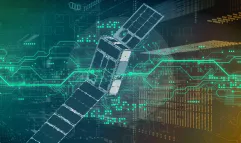Thales Alenia Space has reached another important milestone in the development of Galileo Second Generation with the successful completion of the Satellite Critical Design Review (SCDR) Board.
Thanks to the unrelenting efforts of all participants, the SCDR was recently held after verifying test and design progress. The final phase of the review got underway on March 18 in Rome with more than 120 participants present, including teams from Thales Alenia Space, the European Space Agency (ESA), the European Commission (EC) and the European Union Agency for the Space Programme (EUSPA), culminating in the final CDR Board held on the 17th of April at ESTEC premises, ESA’s technical centre in the Netherlands.
Key achievements
Our teams in Rome worked tirelessly to meet the tight schedule of completing the review in four weeks.
Following successful testing of two structural models and their qualification for launch on Ariane 62, and the tests of the Engineering Model payload in a conducted and radiated configuration, a deck of around 1300 slides was put together to serve as the basis for the review.
This important milestone confirms the robustness of the design and technical capabilities of the Galileo Second Generation satellite being developed by Thales Alenia Space.
What’s next?
This achievement paves the way for the start of the flight model assembly and integration phase in Q4 2024. First Satellite Compatibility Test Campaigns with the Ground Segment are also expected by end of 2024, in order to ensure full satellite acceptance in the years to come.
About Galileo

Galileo is currently the world’s most precise satellite navigation system, serving close to four billion users around the globe since entering Open Service in 2017. All smartphones sold in the European Single Market are now guaranteed Galileo-enabled. In addition, Galileo is making a difference across a variety of sectors including rail, maritime, agriculture, financial timing services and rescue operations.
Galileo is a flagship program of the European Union, managed and funded by the European Commission. Since the program’s inception, ESA is leading the design, development and qualification of the space and ground systems, as well as procuring launches. The EU Agency for the Space Programme (EUSPA) is the service provider for Galileo, overseeing the market and application needs and closing the loop with users.
Thales Alenia Space was involved in every development phase of the first-generation Galileo system, in charge of system support, the Galileo Mission Segment and the Galileo Security Facility. In 2021, our company was selected by ESA, acting for the European Commission, to build six of the 12 new satellites for the Galileo Second Generation sovereign constellation.
In July 2023, we signed contracts with ESA and the Commission to design and build the Galileo Second Generation mission ground segment and to provide technical support for systems engineering with our European partners.


